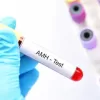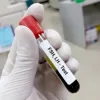Assisted Hatching
A procedure used to assist the
natural process of hatching
in a developing embryo

Disclaimer to HFEA
The above procedure is considered to be a treatment add-on by the HFEA. More information can be found at https://www.hfea.gov.uk/treatments/treatment-add-ons/
Treatments
Find out more about our related services
[ubermenu config_id=”servicesubmenus” menu=”66″]
[ubermenu config_id=”servicesubmenuyell” menu=”67″]
[ubermenu config_id=”servicesubmenus” menu=”68″]
Why Choose Us?
Here are some facts about your fertility journey with us that we’d like to share with you:
Every evaluation and treatment plan is uniquely tailored to meet your individual needs
You will have access to leading professionals, with over 35 years combined expertise, providing you with confidence and reassurance in your fertility diagnosis and subsequent treatment
Our multidisciplinary team includes specialists in fertility, urology, nutrition, counselling, genetics, endocrinology, haematology and weight management to provide a comprehensive range of support as and when you need it
We will work with you closely to understand your individual circumstances, identify any problems and agree with you, the best course of action to help make your dream a reality
We will always be honest and open about your chances of success with treatment.
Your comfort and care is always our top priority
Our focus remains entirely on you as an individual, your unique needs and your wellbeing
All investigations and treatments are provided within our new state-of-the-art clinic based in Elstree which offers a spacious environment with comfortable surroundings, to enhance your care and experience. We offer investigations and scans at our satellite locations too.
Our friendly consultant-led team is here to support you at every step throughout your fertility journey





